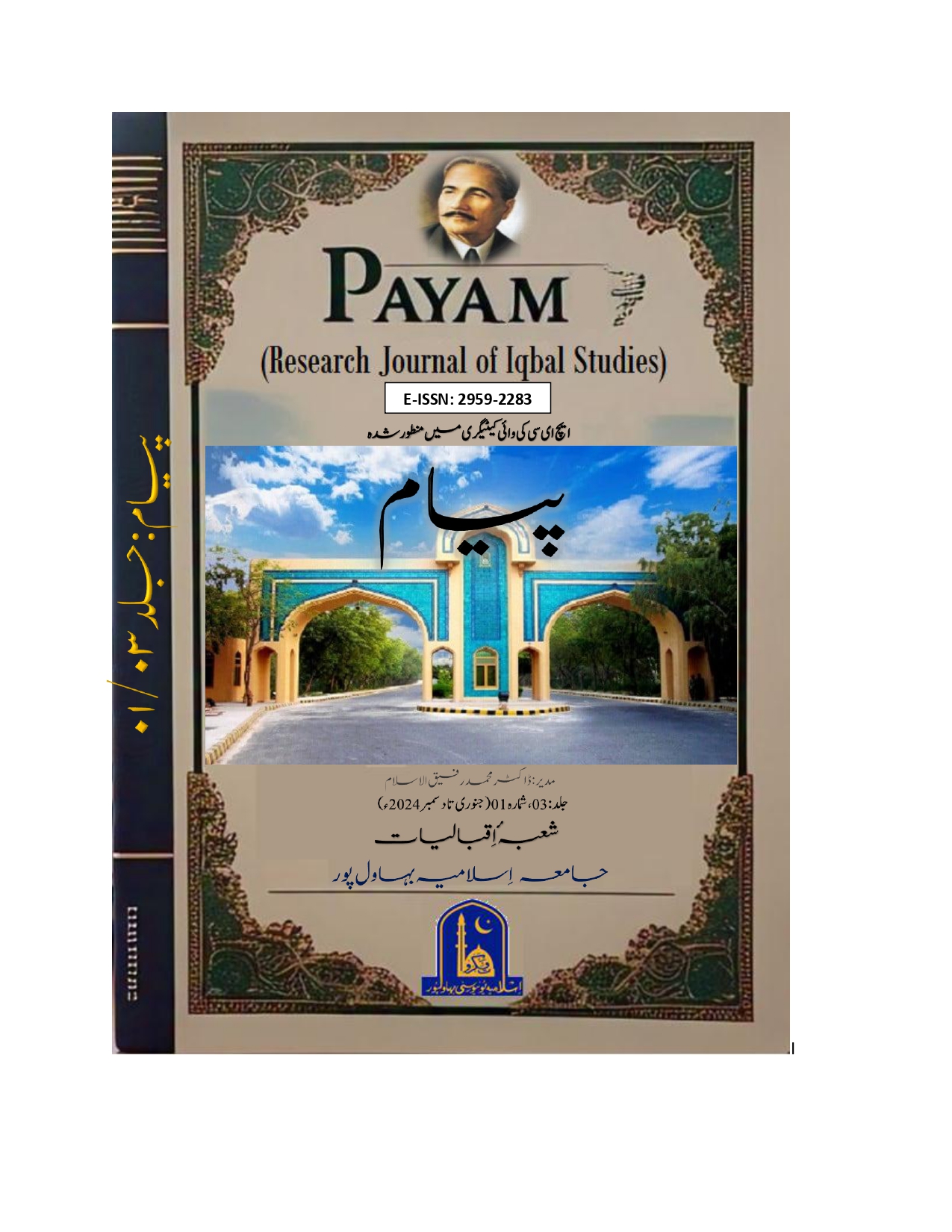علامہ اقبال اور مصری شاعراحمد شوقی کے ہاں فکری مماثلتیں
Intellectual similarities between Allama Iqbal and Egyptian poet Ahmad Shawqi
Keywords:
Iqbal, Ahmed Shawqi, Renaissance, patriotism, Muslim heroesAbstract
In the 19th century, an intellectual and practical movement against Western influence became evident across Islamic nations, with writers and poets playing a central role in the cultural renaissance of the Muslim world. Among these literary figures, Muhammad Iqbal in India and Ahmed Shawqi in Egypt emerged as pioneering voices, each offering a powerful expression of Islamic identity and resistance to colonialism. This article explores the intellectual parallels between Iqbal and Shawqi, analyzing their shared themes of patriotism, reverence for Islamic history, and devotion to the Prophet Muhammad ﷺ. Both poets express deep sorrow over the loss of Islamic glory in Andalusia, and their poetry reflects a profound cultural pride, rich emotional depth, and a spirit of resistance. Through their patriotic anthems, which resonated widely among all social strata, Iqbal and Shawqi revived Islamic historical consciousness and celebrated the achievements of Muslim heroes, who are immortalized in Islamic history. This comparative study highlights how these poets contributed to the intellectual foundations of a pan-Islamic identity and solidarity, marking them as pivotal figures in the Islamic world's response to the challenges of their time.




 PAYAM ( Research Journal of Iqbal Studies) by
PAYAM ( Research Journal of Iqbal Studies) by 